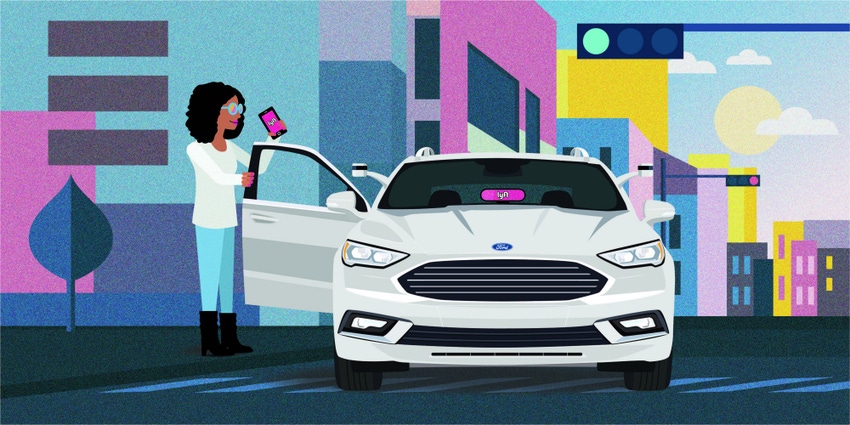Ford Lyfts its self-driving ambitions
Ford has announced a new partnership with ride-sharing business Lyft, which is proving to be a bit of a social butterfly in the autonomous world.
September 27, 2017

Ford has announced a new partnership with ride-sharing business Lyft, which is proving to be a bit of a social butterfly in the autonomous world.
The partnership itself will focus on playing around with the software so Ford cars will be able to seamlessly connect with the ride-hailing networks. What this means in the long-run remains to be seen, but if Ford has ambitions to dominate the Lyft fleet, like Prius does with Uber, it might find some resistance from General Motors, which is an investor in Lyft.
But the top-line mission statement from the pair; how do you create a proposition which makes it as easy for customers to hail a self-driving car as a normal one?
“Today, we’re announcing a significant step toward bringing self-driving vehicles to the masses thanks to a new partnership with Lyft that will help both companies progress toward a more affordable, dependable and accessible transportation future,” said Sherif Marakby, Ford’s VP of Autonomous Vehicles and Electrification.
On the surface of it, it does sound like a useful partnership for both parties. Lyft has a huge number of customers, as well as knowledge of how traffic moves around cities. Ford has bigged itself up for autonomous vehicle technology development and large scale manufacturing. And it’s a tie for fleet management and big data experience. Bringing all of this experience together will make a useful mix for the development of self-driving cars.
Such a partnership is demonstrative of Ford’s renewed focus on technology which has been on the up since the appointment of Jim Hackett as CEO. Prior to the top job, Hackett led the car brands venture into autonomous and connected vehicles.
In truth, Ford has not been one of the frontrunners, but it has hardly been shy in the world of autonomous vehicles. In February, the team announced a $1 billion investment in AI and robotics firm Argo AI. As part of the agreement, Argo AI will assist in developing a virtual driver system as Ford moves towards its ambitions of fully autonomous vehicles by 2021. Ford also hopes to monetize the platform through software licensing agreements as well.
From Lyft’s perspective, while it is an admirable ambition to try and bring the world together to play nice, it should be wary its carefree attitude towards relationships doesn’t turn sour. Lyft might be happy to cooperate with everyone (mainly because that benefits it) working with that many competitors might lead to several broken bridges.
The commercial world is a cut-throat one, and who is to say one company might break ties because of a relationship with a competitor. The quantity versus quality argument will have supporters on both sides, but paying too much time developing new relationships as opposed to activating the current ones might turn around and bite Lyft if it isn’t careful.
About the Author(s)
You May Also Like








.png?width=300&auto=webp&quality=80&disable=upscale)


_1.jpg?width=300&auto=webp&quality=80&disable=upscale)


.png?width=800&auto=webp&quality=80&disable=upscale)